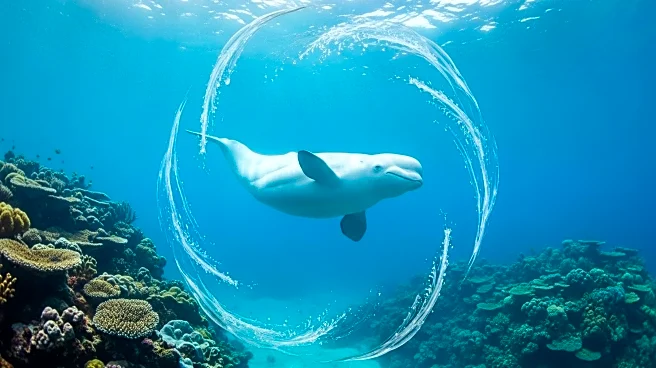What's Happening?
The Canadian government has denied Marineland's request to export 30 beluga whales to the Chimelong Ocean Kingdom aquarium in China. This decision aligns with Canada's 2019 law prohibiting the use of whales and dolphins in entertainment shows or keeping them in captivity. Fisheries Minister Joanne Thompson emphasized that whales should reside in the ocean rather than in tanks for entertainment. Marineland, located near Niagara Falls, Ontario, expressed disappointment, stating that relocating the whales to an accredited facility abroad was the only viable option for their care. The park, which announced its closure to the public in 2024, is currently for sale, and the future of the whales remains uncertain.
Why It's Important?
This decision underscores Canada's commitment to animal welfare and the ethical treatment of marine life. By refusing the export permit, the government reinforces its stance against the exploitation of whales for entertainment purposes. The ruling has significant implications for Marineland, which must now find alternative solutions for the care of its whales. The decision also highlights the broader global debate on the ethics of marine animal captivity and the responsibilities of facilities that house such animals. Stakeholders in the animal welfare community may view this as a victory, while Marineland faces challenges in ensuring the well-being of its remaining marine animals.
What's Next?
Marineland must now explore other options for the care and relocation of its beluga whales. The park's closure and ongoing sale add complexity to this task, as financial and logistical challenges may arise. The Canadian government has indicated a willingness to consider export requests that comply with the Fisheries Act, suggesting that Marineland could pursue alternative destinations for the whales. Meanwhile, animal welfare advocates may continue to monitor the situation closely, advocating for solutions that prioritize the well-being of the whales.
Beyond the Headlines
The decision reflects a growing global movement towards more ethical treatment of marine animals, challenging traditional practices of captivity for entertainment. This case may influence other countries and facilities to reconsider their policies on marine animal captivity. Additionally, it raises questions about the future of facilities like Marineland, which must adapt to changing societal values and legal frameworks regarding animal welfare.









